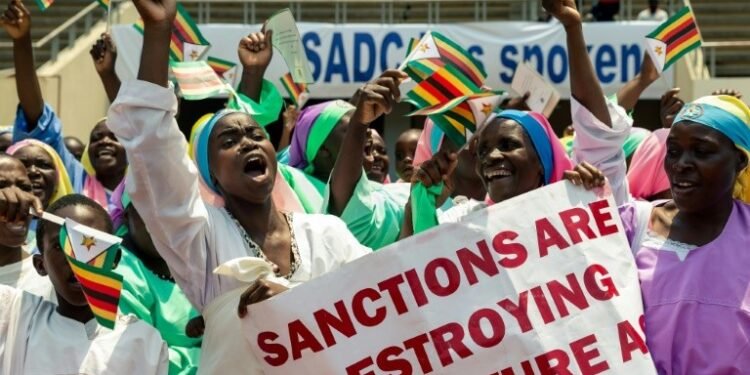African countries have been at the receiving end of combined sanctions from the United Nations (UN), the European Union (EU), and the U.S. than any other continent and these sanctions have been used to advance a range of foreign policy goals.
Most of the sanctions slammed on African countries include arms embargoes, targeted sanctions on individuals, restricting trade of commodities that support combatants, and travel restrictions.
Others include asset freezes, sanctions against doing business with targeted individuals or companies, and restricting investment in sanctioned regimes all are instruments which the U.S. wields with particular effect.
The concern is that broad sanctions can have far-reaching consequences, impacting entire nations and affecting innocent citizens who have no connection to the political leadership or decision-making processes.
Ordinary people, including vulnerable populations, may suffer unintended consequences, such as economic hardship, due to sanctions that are intended to target the culpable parties.
A good example is the arms embargo placed on Central African Republic, after Muslim Seleka rebels seized power in the majority Christian nation in 2013. The action was heavily criticized as the country buckled under the attack of external terrorist groups without adequate arms to protects the innocent citizens.
Also, Zimbabwe recently lamented the loss of over $150 billion due to the freezing of assets, the cessation of donor support and the blocking of business opportunities caused by sanctions imposed on the country since 2001 by the United States and European Union.
According to data from the Council on Foreign Relations, below are 10 African Countries or territories where there are active sanctions programs as of June 2024.
| Rank | Country | U.S. sanctions | EU sanctions | UN sanctions |
|---|---|---|---|---|
|
1 |
Central African Republic |
|
|
|
|
2 |
Congo (DRC) |
|
|
|
|
3 |
Libya |
|
|
|
|
4 |
Somalia (al-Shabaab) |
|
|
|
|
5 |
South Sudan |
|
|
|
|
6 |
Sudan |
|
|
|
|
7 |
Guinea |
|
|
|
|
8 |
Mali |
|
|
|
|
9 |
Zimbabwe |
|
|
|
|
10 |
Guinea-Bissau |
|
|
While speaking before the US Senate Foreign Relations Subcommittee on Africa and Global Health Policy, Princeton N. Lyman, senior advisor to the president at US Institute of Peace noted that external bodies like the UN most times, do not have a direct influence on sanctions it imposes on Africa nations.
“Most UN sanctions in Africa have proceeded from recommendations, and prior action, by the African Union (AU) or a sub-regional body like the Economic Community Of West African States (ECOWAS)” he said.
An overwhelming majority – about 95% or 41 out of 43 – of targeted sanction packages imposed on African nations were actually initiated by regional African organizations themselves.











